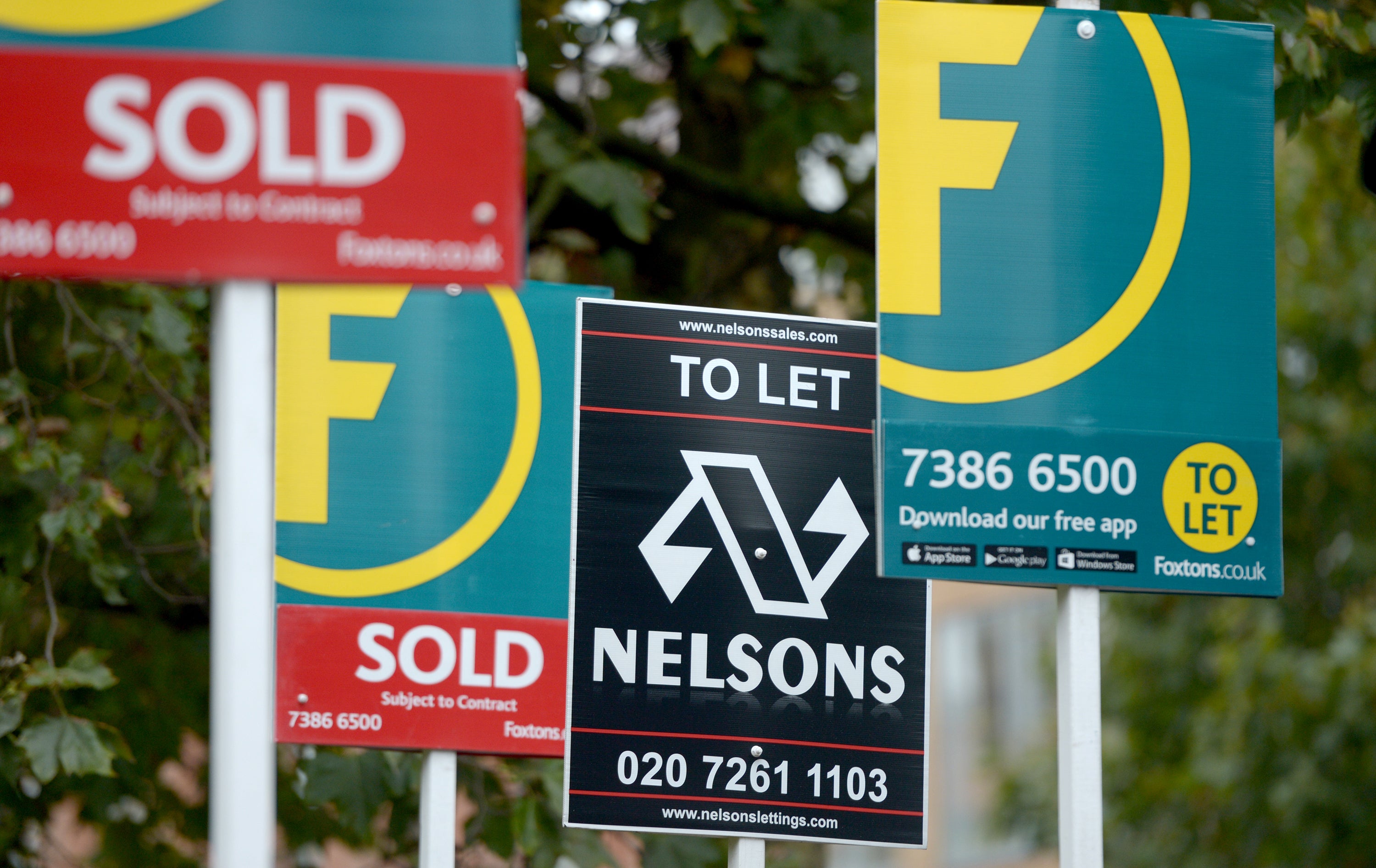Rightmove says house prices hit rare ‘full house’ this month with increases across board
Bad news for generation rent as prices rise across every region and every sector. Can anything slow the runaway train, asks James Moore


A full house in poker is something to celebrate. In the property market, not so much.
What it means is that prices are rising across all regions and sectors of the market (first time buyer, second stepper, top of the ladder). This is extremely rare.
The last time it happened, says Rightmove, which today releases the latest edition of its house price index, was back in March 2007, just before the runaway train crashed into the brick wall of the financial crisis.
What is responsible for such a boom – asking prices have been rising at an average of 6.5 per cent and in some places annual growth has topped 9 per cent – against an economic backdrop that is uncertain at best?
Some people may have been motivated to try and move up the ladder and lock in a low interest rate mortgage ahead of a potential rate rise. The government’s ridiculous subsiding of first time buyer mortgages has also lifted the first rung of the ladder. The average asking price for first time buyers has reached £210,672. That compares to an average annual salary of just above £30,000.
You can see the scale of the problem for generation rent, especially if they don’t have access to the Bank of Mum and Dad, which is already one of the nation’s biggest lenders.
Fundamentally, while the number of properties coming to market has improved a bit, it is still failing to meet demand.
Britain has a profound housing shortage. As a result, those insufferable dinner parties where people sitting on equity pat themselves on the back have moved beyond London and the southeast now the pandemic restrictions have eased. It is places like Wales, the southwest, and the east Midlands that have been experiencing the really explosive growth. The chardonnay’s been flowing from Swansea to St Ives.
The capital actually has remained something of a laggard while all this has been going on. The growth in home working has given buyers a wider range of options than they once had. Many of those scarred by lockdown have been seeking bigger properties in places where they’re vaguely affordable, which means outside London. But the latter is starting to show signs of shaking off the cobwebs.
The government, having taken note of the fact that owner occupiers are more likely to vote Tory than are renters, attempted to address the national shortage by shaking up planning rules in the hope of getting more new homes built, only to see its plans floundering on the nimbyism of its voters in the southern “blue wall”.
Michael Gove has now been charged with salvaging something from the wreckage, so there’ll be no more nightclubbing for him for a while. Solving the policy dilemma he’s faced with, however, could easily drive him to drink.
Chestertons, the estate agent, thinks the end of both the duty holiday and the government’s furlough scheme will ultimately serve to cool the market’s excess of enthusiasm, although it has adjusted its 2021 growth expectations upwards.
The planned national insurance increase combined with an inflation spike will serve to take money out of people’s pockets. Wages are rising in some sectors, particularly where there are shortages of workers, but not by enough across the board to compensate. Falling real incomes, a renewed cost of living crisis, this should create a natural ceiling.
Trouble is, this is a market in which ceilings keep on getting broken. As a result, home ownership is becoming an increasingly distant dream for many Britons. Owning a full house requires a middling lottery win just to raise the deposit.
So much for the property owning democracy.






Join our commenting forum
Join thought-provoking conversations, follow other Independent readers and see their replies
Comments